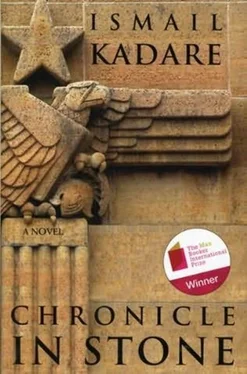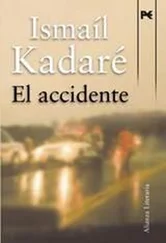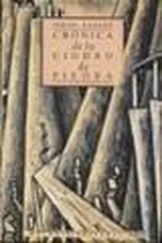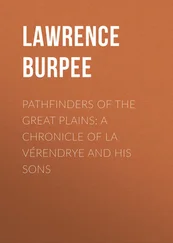Ismaíl Kadaré - Chronicle in Stone
Здесь есть возможность читать онлайн «Ismaíl Kadaré - Chronicle in Stone» весь текст электронной книги совершенно бесплатно (целиком полную версию без сокращений). В некоторых случаях можно слушать аудио, скачать через торрент в формате fb2 и присутствует краткое содержание. Жанр: Современная проза, на английском языке. Описание произведения, (предисловие) а так же отзывы посетителей доступны на портале библиотеки ЛибКат.
- Название:Chronicle in Stone
- Автор:
- Жанр:
- Год:неизвестен
- ISBN:нет данных
- Рейтинг книги:4 / 5. Голосов: 1
-
Избранное:Добавить в избранное
- Отзывы:
-
Ваша оценка:
- 80
- 1
- 2
- 3
- 4
- 5
Chronicle in Stone: краткое содержание, описание и аннотация
Предлагаем к чтению аннотацию, описание, краткое содержание или предисловие (зависит от того, что написал сам автор книги «Chronicle in Stone»). Если вы не нашли необходимую информацию о книге — напишите в комментариях, мы постараемся отыскать её.
Chronicle in Stone — читать онлайн бесплатно полную книгу (весь текст) целиком
Ниже представлен текст книги, разбитый по страницам. Система сохранения места последней прочитанной страницы, позволяет с удобством читать онлайн бесплатно книгу «Chronicle in Stone», без необходимости каждый раз заново искать на чём Вы остановились. Поставьте закладку, и сможете в любой момент перейти на страницу, на которой закончили чтение.
Интервал:
Закладка:
On the seventh day of bombing something happened that was not without importance. A tin plaque was put up in our street. Some strangers came by early in the morning and nailed it to the wall of our house, to the right of the front door. In big black letters it read: “Air-raid shelter for 90 persons”.
There were no other signs in our street. We had never seen anything but a few posters giving city ordinances, and they peeled off in two or three days, soaked by the rain and torn by the wind. Obscene graffiti were occasionally scrawled on the walls of houses in chalk or charcoal. But not often. The first real placard was the one nailed to the right of our door.
That day passers-by stopped in front of it and those who could read explained it to the others.
“Is this house for sale?”
“No, Grandpa. It’s about something else.”
“What?”
“It says we should come and hide in this cellar when the planes drop their bombs.”
“Really?”
I stood at the door smiling at passers-by as if to say, “See, that’s what you call a house.” I was very proud. There were many large and beautiful houses in our neighbourhood, but none of them, not Çeço Kaili’s or Bido Sherifi’s or even Mak Karllashi’s mansion had a plaque like this one. It meant that ours was the strongest of all.
I kept smiling, but to my disappointment no one seemed to pay any attention to me. Except for Harilla Lluka, who when he caught sight of me took off his hat with the greatest respect and nodded in my direction. They said Harilla Lluka was the biggest coward in the neighbourhood.
But the indifference of the adults didn’t bother me much. I stayed there at the door and waited impatiently for Ilir to come by. Only a few days before, we had had a long argument about whose house was stronger. We often used to make bets of that kind with each other. Just before that we had been fighting about how far the king could throw a stone. I said he could throw a stone as far as Holy Trinity hill, while Ilir was adamant that he couldn’t throw it further than the riverbank. At the very most, as far as the bridge, but certainly no further.
Who knows how long this argument would have gone on if we hadn’t acquired a new topic for our squabbles! We fought even harder over the relative strengths of our houses, and could have gone on with that fight for a very long time. We might have insulted each other, or even turned to fists or stones, if those strangers hadn’t shown up that fine morning and put up the plaque with those marvellous words: “Air-raid shelter for 90 persons”.
Probably out of spite, Ilir never showed up. He must have heard about the plaque and sneaked home through the alley.
I waited a long time, then finally got bored and went in. I went straight downstairs to the cellar and stood looking respectfully at its thick walls, which hadn’t been whitewashed in ages.
Until then the cellar had never been an important part of the house. We used it to store coal or to slake lime. Compared to the main room two flights up from the ground the cellar was a kind of scullery maid. This main living room had six big fine windows as tall as my father, and a grainy, mottled ceiling of carved wood. A lot of housekeeping went on in this room. My mother would wash and scrub the floorboards until they shone like wax. The curtains on the windows were white with lace borders, and the room was ringed by low wooden ledges covered with thin mattresses, where old women would sit when they came to visit, sipping their coffee and making sage pronouncements. It was easy to see why the other rooms, even the hallway, were jealous of the main room. Envy could be detected in their constricted windows with their sills out of true and in their hunched, narrow doorways.
But everything changed the day the bombs started falling. The windows in the main room were shattered. The room got upset and lost its looks, while the old cellar, tranquil and kind, cared little about what was going on outside.
I felt sorry for the main room, now abandoned by everyone. During the bombing, while the thick walls of the cellar didn’t even vibrate, I felt bad for the main room all alone up there, for I knew it was trembling, shaking all over. I thought of the room as a lady of great beauty now suffering terrible anguish, her nerves strained, while the cellar was an old crone, deaf but tough. As the living room lost its status, the cellar was becoming the most honoured part of the house. It was as if our house had simply been turned upside down.
I would sometimes go up to the living room, now abandoned for good, and look out at the neighbouring houses, their roofs pierced with large holes through which the fine autumn rain now poured. I thought that after the first bombing the same upheaval must have happened in those houses as in ours. Perhaps the damp cellars and basements of the city had been waiting years for this day. Perhaps they had always felt that their time would come.
No doubt about it, these were hard times for the upper floors of the city. When it was built, the wood had cunningly had itself hoisted up top, leaving the stone to the foundations, cellars and cisterns. Down there in the half-darkness, the stone had to fight the rising damp and the groundwater, while the wood, nicely carved and carefully tended, adorned the upper floors. These were light, almost ethereal: the city’s dream, its caprice, its flight of fancy. Now the fancy had met its limit. After giving the upper floors such privileges, the city seemed to have changed its mind, and hurried to rectify the error. It had them covered with roofs of slate, as if to establish once and for all that here stone was king.
In any case, I liked this new age of cellar and basement. All over the city they were putting up metal plaques saying “Air-raid shelter for 15 persons” or “for 22 persons” or “for 35 persons”. But plaques saying “Air-raid shelter for 90 persons” were very rare. I was proud of our house. Suddenly it was the centre of the neighbourhood. It had really come to life. We left the gates open so people could come running in at the first sound of the siren. Some even came ahead of time and would sit for hours in the entrance hall leading to the cellar, eating, smoking and chatting.
The cellar was deep underground. A thick wall separated it from the cistern, part of which ran underneath it. A bit of light came in through a narrow slit cut into the foundation slightly above ground level. The air inside was now altogether stuffy.
Our house had become a public place, and not a day passed without some incident. Someone sprained an ankle running down the narrow steps too fast, others argued over room, someone else swore at all the others when they wouldn’t let him smoke because it might bother the people who were sick. But most of all they bickered over the best spots. Almost everyone brought along blankets, bedding, and even mattresses, and things got more and more crowded.
“What an age we live in,” Bido Sherifi grumbled. “Having to burrow underground like this!”
“These Italian swine will put us through a lot more before they’re through,” Mane Voco said.
“Not so loud! There may be spies here.”
“And the English! Why do they bomb the city instead of dropping their shells on the Italian barracks or the aerodrome?”
“I told you that damned aerodrome would bring the bombs.”
“Look, would you lower your voice?”
“Leave me alone,” Bido Sherifi replied. “All my life I’ve lowered my voice.”
Besides the usual neighbours, all kinds of other people came. Some I had never seen before, or at least not so close up. Qani Kekezi, squat and ruddy, cast his murky eyes here and there, as if looking for a cat. The women were afraid of him, especially Kako Pino. Lady Majnur, from the rich Kavo family, would go down the cellar stairs holding her nose. Two months earlier I had seen a peasant unloading a mule near the gate of her house. He was so filthy (he and the mule had probably both fallen in the mud) that his face and hands looked as if they were made of earth. From her window Lady Majnur was complaining to a neighbour: “He’s the only one who brings the grain he owes me. The other Christian yokels, pardon my language, have started cheating me.”
Читать дальшеИнтервал:
Закладка:
Похожие книги на «Chronicle in Stone»
Представляем Вашему вниманию похожие книги на «Chronicle in Stone» списком для выбора. Мы отобрали схожую по названию и смыслу литературу в надежде предоставить читателям больше вариантов отыскать новые, интересные, ещё непрочитанные произведения.
Обсуждение, отзывы о книге «Chronicle in Stone» и просто собственные мнения читателей. Оставьте ваши комментарии, напишите, что Вы думаете о произведении, его смысле или главных героях. Укажите что конкретно понравилось, а что нет, и почему Вы так считаете.












